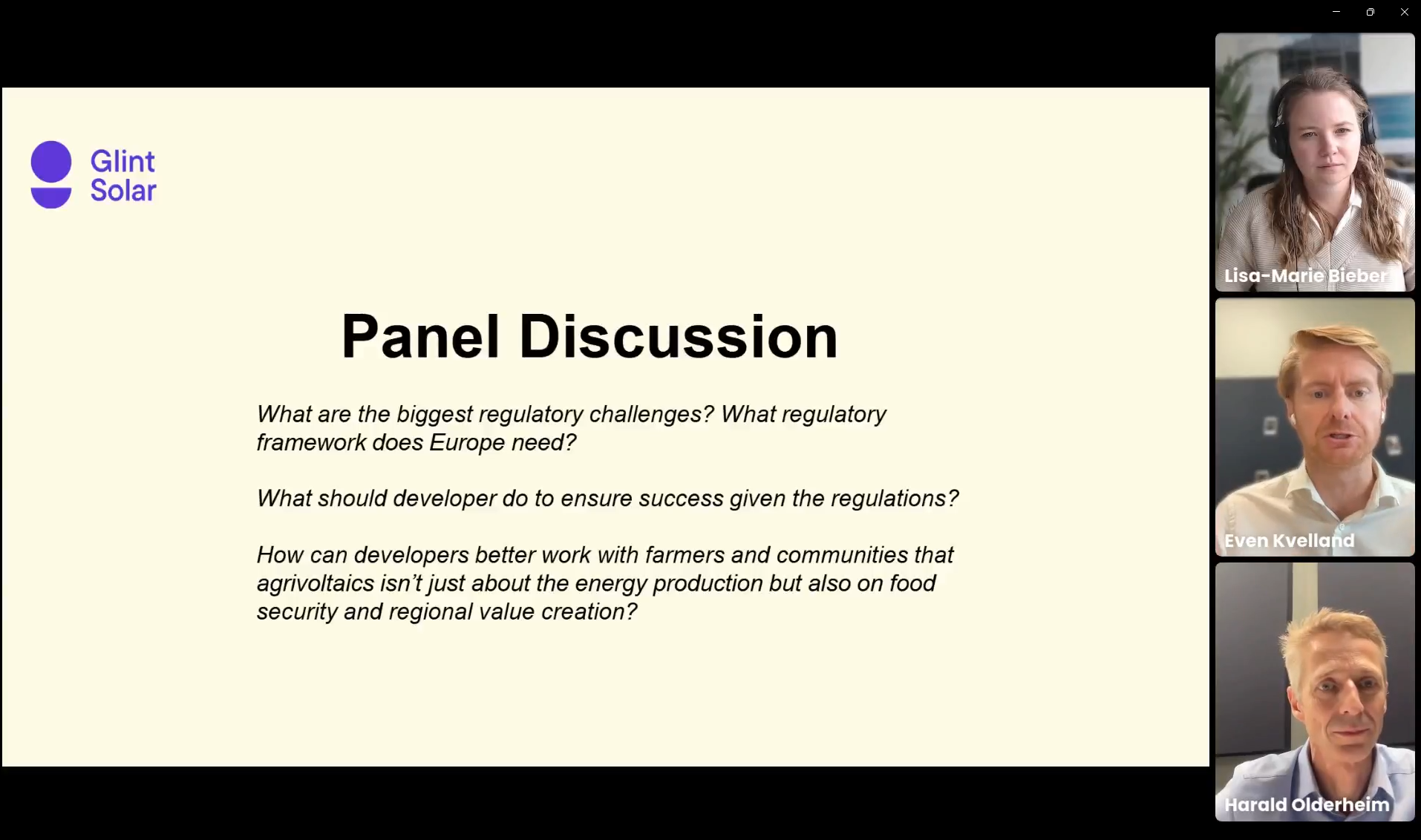Agrivoltaics isn’t a side experiment anymore. It’s reshaping how solar projects are designed and approved. Just look at France, where developers must prove fields deliver 90% of their original crop yield while keeping solar coverage below strict limits. This webinar shines a light on how policies like these are shaping real projects and what developers need to know to succeed.
In this 45-minute session, Lisa-Marie Bieber of Fraunhofer ISE shares what these kinds of policies mean on the ground across Europe’s leading markets. Harald Olderheim, CEO and co-founder of Glint Solar, adds lessons from developers already deep into Agri-PV projects. And Evan Kvelland, co-founder & CCO of Glint Solar, guides the conversation from policy and research all the way to practical developer workflows.
What you’ll take away
-
How Germany, France, and Italy are taking very different paths on Agri-PV and what that means for developers looking to secure permits.
-
Why your choice of design (vertical, tracker, semi-transparent) doesn’t just affect crops. It shifts when and how you earn revenue.
-
How involving farmers early can turn potential blockers into long-term partners.
-
What really tips the scale for projects in crowded permitting environments.
-
Practical ways developers are using software to cut weeks off site evaluations and show communities exactly what a project will look like.
Who should watch
Developers, IPPs and investors moving from interest to investment-grade agrivoltaics, plus policy and utility teams who need a practical view of what’s actually bankable.
Why this session
Fraunhofer ISE lays out the rules and data shaping Europe’s Agri-PV market. Glint Solar shows how developers are already putting those insights into practice, from testing site layouts against country-specific regulations to using 3D visuals that bring farmers and municipalities on board. Watch the full recording to see the regulatory thresholds, design trade-offs and field-proven workflows discussed live.


